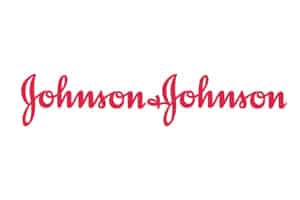Johnson & Johnson’s says its psoriasis therapy Stelara has shown promise as a therapy for Crohn’s disease (CD) and should be filed for the new indication before the end of the year.
In a 628-patient UNITI-2 trial, Stelara (ustekinumab) was more effective than placebo when given as a second-line therapy to patients with moderate-to-severe CD who had failed first-line therapy with steroids or immunosuppressive therapy.
Most patients had not been treated with TNF blockers, the standard biologic therapy for the disease, and none of those enrolled had failed TNF-targeting therapy. Another ongoing trial is looking at the drug’s efficacy in TNF non-responders.
The interleukin-12 (IL-12) and IL-23 inhibitor achieved a clinical response in 52% of patients treated with a 130ng fixed dose, and 56% of those receiving a weight-adjusted 6mg/kg dose. In contrast, 29% of patients on placebo achieved a clinical response.
At eight weeks – a secondary endpoint in the trial – the response rates were 47%, 58% and 32%m respectively, suggesting that weight adjusted dosing was more effective. Clinical remissions were achieved in 31% of the 13mg group and 40% of the 6mg/kg group, compared to 20% of patients on placebo.
Stelara has become a big seller for the company since its launch in 2009, bringing in more than $2bn in sales last year as a treatment for psoriasis and follow-up indication psoriatic arthritis.
It is however facing serious competition from newer biologic agents that have shown greater efficacy in late-stage psoriasis trials, and approval in CD could help J&J offset the impact of competition on the franchise.
The rivals include Novartis’ recently-approved IL-17 inhibitor Cosentyx (secukinumab) – widely tipped to become a blockbuster – as well as late-stage pipeline candidates such as AstraZeneca’s rival IL-17 blocker brodalumab and Boehringer Ingelheim’s BI 655066, which targets IL-23 only.
“Findings from this phase III programme provide an important first look into the efficacy and safety of Stelara induction therapy in the treatment of inflammatory bowel disease – a disease where new therapeutic options are needed as the incidence continues to rise globally,” said trial investigator Brian Feagan of the University of Western Ontario in Canada.
In time, J&J’s drug could become a first-line therapy option in CD, he added.
J&J said its Janssen pharmaceuticals unit would file for approval of Stelara for second-line CD therapy later this year, potentially providing a new treatment option for a disease that afflicts 700,000 Americans and around 250,000 people in Europe.





